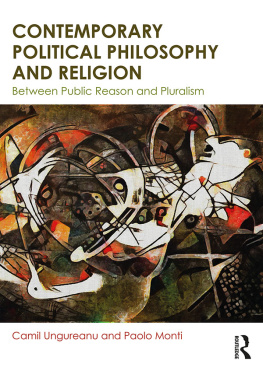Routledge Revivals
Elitism
First published in 1980, this book presents an important critique of prevailing political doctrine in Western societies at a time of major change in circumstances of Western civilization. G. Lowell Field and John Higley stress the importance of a more realistic appraisal of elite and mass roles in politics, arguing that political stability and any real degree of representative democracy depend fundamentally on the existence of specific kinds of elites.
Elitism
G. Lowell Field and John Higley
First published in 1980
by Routledge & Kegan Paul Ltd
This edition first published in 2013 by Routledge
2 Park Square, Milton Park, Abingdon, Oxon, OX14 4RN
Simultaneously published in the USA and Canada
by Routledge
711 Third Avenue, New York, NY 10017
Routledge is an imprint of the Taylor & Francis Group, an informa business
1980 G. Lowell Field and John Higley
All rights reserved. No part of this book may be reprinted or reproduced or utilised in any form or by any electronic, mechanical, or other means, now known or hereafter invented, including photocopying and recording, or in any information storage or retrieval system, without permission in writing from the publishers.
Publishers Note
The publisher has gone to great lengths to ensure the quality of this reprint but points out that some imperfections in the original copies may be apparent.
Disclaimer
The publisher has made every effort to trace copyright holders and welcomes correspondence from those they have been unable to contact.
A Library of Congress record exists under ISBN: 79041648
ISBN 13: 978-0-415-81084-5 (hbk)
ISBN 13: 978-0-203-07065-9 (ebk)
First published in 1980
by Routledge & Kegan Paul Ltd
39 Store Street,
London WC1E 7DD.
Broadway House,
Newtown Road,
Henley-on-Thames,
Oxon RG9 1EN and
9 Park Street,
Boston, Mass. 02108, USA.
Set in 10/12 Linotron Times by
Input Typesetting Ltd,
London
and printed in Great Britain by
Redwood Burn Ltd,
Trowbridge & Esher.
Copyright G. Lowell Field, John Higley 1980
No part of this book may be reproduced in
any form without permission from the
publisher, except for the quotation of brief
passages in criticism
British Library Cataloguing in Publication Data
Field, George Lowell
Elitism.
I. Elite (Social sciences)
I. Title II. Higley, John
301.4492 HM14179-41648
ISBN 0 7100 0487 7
Contents
Preferences, and beliefs resting on them, usually pervade inexpert thought, just as they pervaded all thought in the pre-modern period. People commonly interpret factual matters according to their preferences and then spend most of their time arguing that these preferred interpretations are, or should be, true. Very largely, what one wishes were true determines what one judges to be useful knowledge. In social thought at least, the possibility that matters contrary to our preferences might be true is seldom explored seriously.
Nearly four centuries ago, the physical and life sciences and the technologies to which they have contributed emerged from this unproductive and self-deceptive mode of thought. Their practitioners did so by finding grounds for belief other than their wishes and by largely excluding preferences and normative considerations from formal discussion. However, this value-free position was itself possible only because, at the time, all could readily assume that an increase of factual and causal knowledge in the physical and life sciences would be universally beneficent. Thus there needed to be no serious discussion about whether means of prolonging life, reducing pain, increasing food production, or providing substitutes for human labour were to be welcomed. Until very recently, in other words, physical and life scientists did not face the difficulty of recognizing that some possible knowledge not seen to be useful from the standpoint of the preferences and beliefs that underlay the scientific enterprise might still be true.
No such simple way of abandoning false knowledge and acquiring reliable knowledge was available to the social sciences. Social scientists could clearly and unambiguously discuss the subjects of their studies only if they all overtly or covertly assumed some more or less universal moral standard. But apparently there is no common human point of view about social behaviour that is similar to the one that served the physical and life sciences during their initial advance. This is so because of the conflicts of interest between persons and groups that inevitably arise from material scarcities and from probably inherent social scarcities of such things as respect, status and belongingness.
In the social sciences, and now in some areas of the natural sciences, there are different moral points of view. These strongly determine the expected usefulness of particular knowledge and, consequently, whether it will be seriously investigated and, if true, found to be so. Thus social scientists identifying with a body of slaves would not consider the discovery of psychological techniques for keeping slaves submissive an advance in knowledge, and they would not work to discover such techniques. Given that social and political knowledge can be used to the disadvantage of some persons, social scientists who happen to hold those persons points of view, or to sympathize with them, will consider that it is better that such knowledge not be known. In brief, compared with the physical and life sciences, the backwardness of the social sciences may be accounted for by their practitioners intermingling of diverse moral points of view with factual matters, as well as by their failure to adopt such points of view as might open the way to the reception of such knowledge.
One such point of view that ought to be adopted seriously is that of the successful, participative and allegiant person in a modern national society. This is the person who is confident of his ability to conduct his relations with society in personally satisfying ways. From his point of view, but not from other points of view, elitist questions may seriously be asked, for example, To what extent and in what respects is political and social power necessarily concentrated in a few persons in all societies? As this question indicates, in current social science elitism refers to factual concentrations of power and influence. In this usage, elites need not be better or cleverer than non-elites.
Persons whose circumstances make them self-confident and self-reliant may seriously ask this or similar questions because they are prepared to accept any likely answer as useful knowledge. By contrast, such questions cannot be asked seriously from the point of view of the unsuccessful, the excluded, and the disallegiant person. The latter individual feels that, unless it is greatly changed, the society to which he belongs offers him no real satisfaction. He cannot seriously ask an elitist question because he cannot accept as useful knowledge any answer other than a very specific one that offers some clear road to social transformation.
Since there is almost certainly some necessary amount of power concentration in all societies, whether it is relatively much or relatively little, the elitist question stated above, and the larger intellectual position it reflects, presumably offer a way of advancing social knowledge. One who can honestly ask the question can also accept the answers that investigation might bring. Thus a frank pursuit of social knowledge from an elitist point of view would very likely be more successful in accumulating knowledge about social and political structure than the social sciences have so far been.











